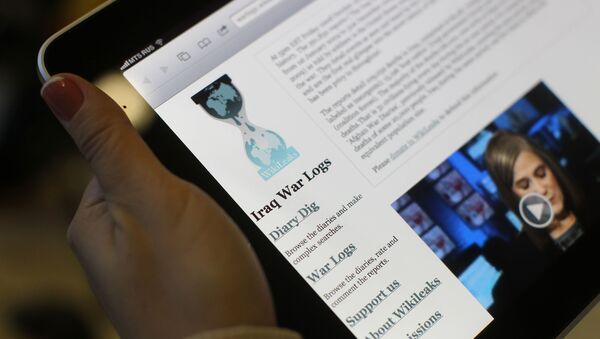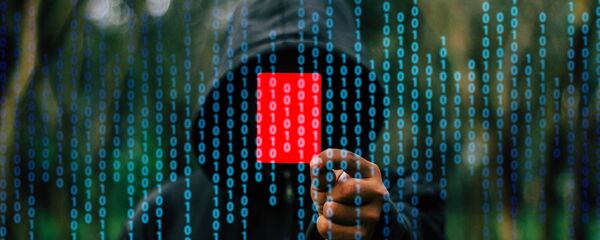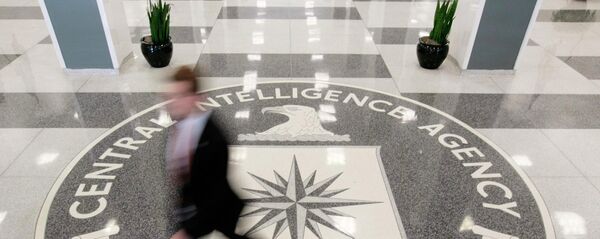The extent to which WikiLeaks' Vault 7 leak has shed light on CIA hacking tools and practices is surprising and shocking, according to David Glance, a Director of the University of Western Australia's Centre for Software Practice.
Speaking to Radio Sputnik's Mark Hirst, Glance referred to WikiLeaks' notion that the leaked information could have been circulated among contractors and consultants within the service for some time.
Given this, the Australian researcher believes that the documents were handed to WikiLeaks by an "insider."
It is highly unlikely that "an external agency hacked the CIA and managed to get this material," Glance remarked.
Commenting on whether or not large software vendors could have been complicit in the CIA hacking practices, the researcher noted that he is not convinced that anything like this actually took place.
"I am not convinced that they would have been complicit [in CIA efforts]," he said.
He believes that "Apple and Google, for example, are a little bit more reluctant to do this, than Yahoo, for one example, which was much more willing to collaborate and cooperate with security services."
Glance highlighted that he wasn't surprised that the CIA and other security services have "zero day" exploits, special malware and other devices.
"Going back to 2011 we know that there's an entire industry that essentially has been build up around providing law enforcement and secret services with mechanisms and tools to able to do this," he said.
However, the Australian researcher expressed his skepticism about the probability of the CIA carrying out its hacking operations on a massive scale.
"I am not sure about mass surveillance," he noted, suggesting that the exploits and special malware are being used to get access to specific targets.
"I don't think that an average citizen of whatever country needs to be particularly concerned [about] the CIA [surveillance]," he noted.
"The question is that this [capability] can be turned to any purpose and really in the past years the ability for governments of a number of countries being able actually to target it to other purposes including elections and other things," Glance said.
Indeed, prior to releasing its Vault 7, WikiLeaks published CIA files disclosing the agency's meddling in France's 2012 presidential elections.
"My new story: CIA conducted a 10-month espionage operation targeting the last French presidential election," Julian Assange tweeted on February 17.
My new story: CIA conducted a 10 month espionage operation targetting the last French presidential election
— Julian Assange (@JulianAssange) 16 февраля 2017 г.
https://t.co/WYsUXILN3P pic.twitter.com/dLOiavt79p
Ahead of the elections, France's major political parties were targeted for infiltration by the agency's human and electronic spies, WikiLeaks revealed.
In a recent press release, WikiLeaks has called for a public debate on whether "the CIA's hacking capabilities exceed its mandated powers" and emphasized "the problem of public oversight of the agency."
For his part, Julian Assange highlighted "an extreme proliferation risk in the development of cyber 'weapons'."
"Comparisons can be drawn between the uncontrolled proliferation of such 'weapons', which results from the inability to contain them, combined with their high market value, and the global arms trade," he stressed.
Assessing the possible consequences of the latest leak, Glance opined that it has both damaged the CIA's image and dealt a heavy blow to US national security.
"It is damaging to [both] the CIA and US national security," he said, adding that if this information had a wide circulation before it was leaked, that was even worse.
While Glance has expressed his surprise regarding the extent of the leak, which comprises 8,761 documents and files, WikiLeaks signaled Wednesday that it has released less than one percent of its Vault 7 series.
Have you heard the news? Sign up to our Telegram channel and we'll keep you up to speed!



